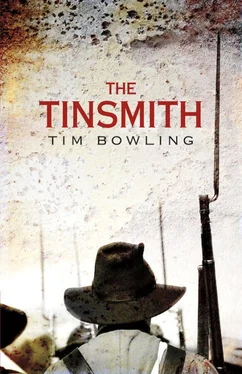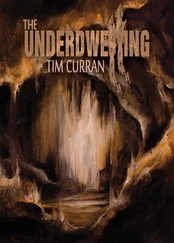“Gentlemen…”
The one word came cast in ice. Owen uncrossed his legs and turned his face slowly from one to another.
“I don’t have time for discussions of the finer points of morality. But I believe there is a way we can use this information. Dare’s backers will no doubt consider the matter of his blood to be a cause of some—shall we say—hesitation. In the event that this proves otherwise, I will see to it that Dare causes us no further trouble this season.”
Craig couldn’t resist the bait. He felt uncomfortably like a boy in a schoolyard listening to an older boy talk about carnal matters. “And just how do you intend to do that, Owen?”
The grey eyes under the heavy eyebrows made Craig shiver; there was a quality of imminent predation about them.
“It’s a clear matter of law and order. Of British law and order. Is this not, after all, British Columbia? Let’s just say that I have a certain influence with the magistrate, a man who can have Dare locked up for a week or two.”
“Ye canny bastard,” McKay said.
Fayette scoffed. “Law and order? It’s a wonder any of you can succeed at all in business. When a nigger causes trouble, there’s no need for courts. A whip and a rope is—”
“A mere variation,” Owen said.
Now the shiver was a chilling ague. Craig swallowed drily.
“Enough!” Henry Lansdowne stood. “You would think the Lord had no senses for detecting such evil. I will be party to no such plan, Owen. Yes, Dare has been difficult. But I do not know that he deserves this uncharitable plotting. In any case, I will not be involved.” He turned and nodded at his brother, who sat, boulder-still, staring at the Southerner.
After several seconds of uncomfortable silence, Henry Lansdowne coldly bid the company a good evening and left the room.
Thomas Lansdowne cleared his throat and faced Owen.
“You mean to have Dare arrested when the season is at its peak? On what charge?”
“The man believes a large stretch of river is his own personal property. Now he’s using a shotgun to keep other boats away. In most civilized countries, that’s criminal behaviour.”
Ben Lundberg grinned and rubbed his close-cropped blond hair. “But maybe dis is not so civilized a place here, hey? You are always so civilized, Alex Owen?”
The Scotsman looked for an instant as if he might smile. Instead, he finished the whisky in his glass and said, “I come from a Christian country and was born of Christian parents. So indeed I must be.” He stood and it was like the easy uncoiling of a snake after a long bask in the sun. “Gentlemen.”
When Owen had gone, Marshall English scratched his head of tight black curls, then reached for a bottle on the table.
“It’s all too involved for me. But I feel a little sorry for Dare, to be honest. With the likes of Owen and you, Craig, gunning for him, I don’t see as he has much of a chance.”
“You’re sure he’s a negro, then?” Thomas Lansdowne said quietly, his broad hands, as if of their own will, forming a noose over his stomach.
“Tell me something. You ever had a real close look at him? Ever looked him in the eyes? No, I didn’t think so. He won’t let it happen. There’s enough nigger blood in him to show if you had a good, close look.” Fayette cleared his throat and spat on the rough plank floor. “I noticed he wore a thick beard. And if his hat was pulled any lower, you wouldn’t know he had eyes to see with.”
Lundberg’s grin flashed wide and wet as a knife cut. “So Billy Dare has a beard? What does dat prove, hey? I see him close up one time, close enough to see how he’s got this long white scar sticking out of the top of his beard on de one cheek. When I asked him about it, he looked straight at me, like a man should, hey, and said it happened in de war between the states. Didn’t sound like a lie to me, and I’m used to hearing lies, especially in dis canning business, hey, Craig?”
As always, the Swede’s jolly, insinuating tone crawled under Craig’s skin. He sucked silently at his molar and said, “You can’t deny Dare keeps to himself. Like he’s got something to hide.”
The Swede clapped his free hand to his forehead. The force slopped the whisky out of the glass and onto his fist. He licked the back of his broad hand and laughed. “If every man around here who wanted to be left alone was a nigger, we’d have more niggers dan dey have way down south in Dixie.”
The joke fell flat. All the men stared at the thick air in front of them, as if Dare’s face might emerge from the tobacco smoke at any time.
Finally, Daniel Fayette shrugged and placed his hands open on the table. “Believe what you want. But I know a nigger when I see one. Bring me a bible and I’ll swear on it if that’ll make you feel any better.”
Craig noticed Thomas Lansdowne’s wondering expression, bald and pathetic as a newborn bairn’s. But it didn’t matter what Dare’s blood meant to any other man; the fact was, Craig needed Dare to be more than white; he needed him transparent. He needed to see through him to imagine the field for the larger battle. And there was only one sure way to see through a man, and that was to remove him entirely. It didn’t matter that Dare seemed to have financed his operations alone, that he was not beholden to Victoria or eastern interests. It didn’t even matter that his blood was now certain to convince the others to drive him out. The point was, Owen had stolen the show again; it was as if he had brought the news about Dare being a nigger. Somehow Craig felt defeated at the very brink of triumph. He could no longer deny the obvious: Owen wouldn’t hesitate to treat a fellow Scot any different than he would treat an Englishman or a nigger.
Craig lightly clenched his teeth and let the pain flow from the molar into his jaw. Now more than ever, he needed to clear Dare out of the way.
July 1881, the mouth of the Fraser River
Dr. Anson Baird stood on the wet, wooden deck of the sternwheeler slowly churning its way through the sandheads of a muddy, coagulant river and took in his surroundings. On the near bank, a low marsh of vivid green and brown rushes and grass and mud stretched away to the south for miles. In the opposite direction, to the north, rolled the broad expanse of the rivermouth so wide that not even a black smudge of treeline appeared to indicate the other bank. But beyond that, above the hidden trees, a range of deep blue mountains whose snow-clad peaks dissolved straight into the grey sky was almost striking enough to dwarf the powerful river. If he had been a younger man, Dr. Baird imagined that he could have tried his luck in this fresh, green part of the world.
He drew a deep breath of the brinish air and tried to orient himself. It was certainly a curious sensation to stand in the steady drizzle, inside the repetitive whump-whump of the large paddles, and to watch great black flocks of ducks and geese and other game birds rise with the boat’s progress, like clouds of soot or dust, so silent as to be non-existent if you drew your eyes away. And then, on the river itself, the dingy white sails of dozens of small fish boats scattered here and there, apparently at random, contained their own unnerving silence, the silence of the memories Anson Baird could not repress, even though he tried, if only for the sake of honouring this beauty that was entirely new to him.
Once the rain had blurred his glasses and he had removed them, the rising flocks became shell bursts and the sails of the fish boats took on the same grubby white sag of the hospital tents at Antietam. It was no use. He had travelled this far from home because of the war, and no amount of natural splendour could divert his mind or his spirit from the fact. All the way up the coast on the steamship, as the green of the forests and the blue of the waters turned greener and bluer and then the rain ran the colours into dull greys and sharp blacks, Anson had not been able to lose himself fully in the observation. Not even over the past few days in the bustling city of Victoria, a port half-wild with frontier ambition and half-asleep with English gentility, could he step outside of the long, bloodied shadow of his nation’s terrible conflict. Nor—and he had to face the truth again—could he step outside of the smaller and somehow equally dark shadow of William Dare, the man who had cabled to request his presence here, the slave boy who had looked white enough to pass for white but who never claimed to be anything but black and who, according to the telegram Anson had received a month earlier, needed help. The details were scant, but since William Dare had not asked before now, not once in almost twenty years, for Anson to come to him, it was easy for Anson to decide. A man was no friend, to others or to his own sense of loyalty, if he hesitated at such a summons, regardless of the unpleasantness, past and present, he might be forced to confront.
Читать дальше












